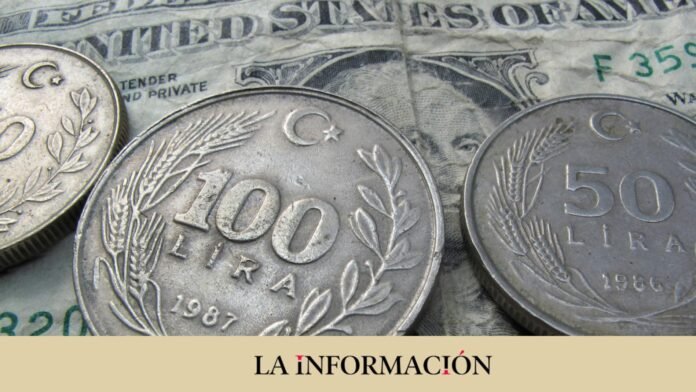Borrowing in US dollars at rates of 5.5% and investing in Turkish lira, at rates at 50%, has been the best-performing carry trade in emerging markets over the past six months, and some bankers say this It is just the beginning as long as orthodox policies are maintained and inflation begins to decline.
Currency arbitrage, in which investors borrow from expensive banks like the United States, Europe and Japan to invest in higher-yielding financial assets in places like Turkey, has given investors who borrowed in dollars a profit of more than 12%. in the last six months, according to data compiled by Bloomberg. This compares with gains of 8% for its closest competitors, Mexico and Russia.
Daniel Wood, portfolio manager at William Blair International, is among those who think this could be just the beginning of Turkey’s push. “If Turkey succeeds in significantly reducing inflation, then we are much closer to the beginning than the end of the lira having a strong carry appeal for international investors. The most important factor in driving the value of this trade is the continuity of politics,” he argues.
While carry traders have seen good returns on Turkey’s high interest rates, the Turkish currency is still down 8.3% against the dollar this year, although the monthly pace of decline has slowed and the lira has even posted gains. . in a few weeks after a surprisingly large interest rate increase by the central bank in March. Central bank Governor Fatih Karahan has repeatedly promised to do “whatever is necessary” to reduce inflation. The message appears to be finally resonating with investors, with banks such as Citigroup Inc. and JPMorgan Chase & Co. recommending Turkish lira trades.
Exchange restrictions
Bloomberg reported last week that Turkish officials are now studying easing restrictions on foreign currency swaps, raising a major hurdle to attracting more foreign money into lira-denominated assets. The restrictions were imposed to prevent short selling of the currency, but they have deterred foreign investment because they also make it difficult to hedge against lira losses.
Meanwhile, recent messaging from the central bank has given some comfort to investors burned by previous policy reversals, according to Gordon Bowers of Columbia Threadneedle Investment. “The central bank has both the ability and the will to engineer a stronger real exchange rate,” Bowers says. Foreign currency portfolio investors are also alerted by news that limits on offshore swaps could be eased and a tightening on the fiscal side, he added.
On the other hand, an increase in long lira positions abroad in recent weeks has caused a divergence between short-term interest rates at home and abroad for borrowing lira, with short-term rates in the abroad falling by around 30%, compared to domestic performance of more than 50%. That hurts the currency’s carry appeal, since carry traders abroad earn only about half of what they would earn in Turkey.
Carry trades in Turkish assets, once a favorite of emerging market investors, were abandoned years ago after the imposition of a series of measures aimed at discouraging short selling of the lira. A more market-friendly team of economic officials, led by former Wall Street banker Mehmet Simsek, was appointed by President Recep Tayyip Erdogan after last year’s presidential election.
Policy turn
The central bank has since raised its policy interest rate from 8.5% to 50%, while easing and repealing some of the unorthodox measures, including mandatory bond purchases imposed on lenders. Turks that suppressed returns and made them less attractive to foreign investors. The return to more orthodox policies has been key to “stabilizing the rates and currency markets in Turkey, supported by President Erdogan’s support for the CBRT’s inflation-fighting approach,” says Phoenix Kalen, head of emerging markets at Societe Generale. . , using the Turkish abbreviation for the central bank. Long lira positions are also recommended.
Investor concerns that Erdogan might intervene in monetary policy, as he has done in the past, has curbed the inflation that resulted from his preference for low interest rates, making him an unpopular policy locally, according to Ulrich Leuchtmann, Head of FX Research at Commerzbank in Frankfurt. “The current high interest rates would not help if the market had to fear that the president could pressure the CBRT at any time to reduce them,” he explains. Foreign investors have bought a net total of $3.7 billion in Turkish bonds since the policy change began in June 2023.

